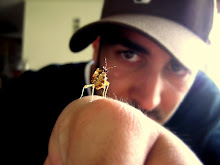From Co-op America's website, here's a good ten things you should never buy again.
1. Styrofoam cups
Styrofoam is forever. It's not biodegradable.
Alternative: Buy recyclable and compostable paper cups.
Best option: Invest in some reusable mugs that you can take with you.
2. Paper towels
Paper towels waste forest resources, landfill space, and your money.
Alternative: When you do buy paper towels, look for recycled, non-bleached products. Search the National Green Pages™ for recycled paper products.
Best option: Buy dishtowels or rags to wash and reuse.
3. Bleached coffee filters
Dioxins, chemicals formed during the chlorine bleaching process, contaminate groundwater and air and are linked to cancer in humans and animals.
Alternative: Look for unbleached paper filters.
Best Option: Use reusable filters such as washable cloth filters.
4. Overpackaged foods and other products
Excess packaging wastes resources and costs you much more. Around thirty three percent of trash in the average American household comes from packaging.
Alternative: Buy products with minimal or reusable packaging, such as at farmer's markets rather than Safeway.
Best Option: Buy in bulk and use your own containers and reusable bags when shopping.
5. Teak and mahogany
Every year, 27 million acres of tropical rainforest (an area the size of Ohio) are destroyed. Rainforests cover 6% of Earth’s surface and are home to over half of the world’s wild plant, animal, and insect species. The Amazon rainforest produces 40 percent of the world’s oxygen.
Alternative: Look for Forest Stewardship Council certified wood.
Best Option: Reuse wood, and buy furniture and other products made from used or salvaged wood.
6.Chemical pesticides and herbicides
American households use 80 million pounds of pesticides each year. The EPA found at least one pesticide in almost every water and fish sample from streams and in more than one-half of shallow wells sampled in agricultural and urban areas. These chemicals pose threats to animals and people, especially children.
Alternatives: Buy organic pest controllers such as diatomaceous earth.
Best Option: Plant native plants and practice integrated pest management. Plant flowers and herbs that act as natural pesticides.
7. Conventional household cleaners
Household products can contain hazardous ingredients such as organic solvents and petroleum-based chemicals that can release volatile organic compounds (VOCs) into your indoor environment, positing a particular danger for children. The average American household has three to ten of hazardous matter in the home.
Alternative: Look for nontoxic, vegetable-based, biodegradeable cleaners.
Best Option: Try making your own green cleaner using vinegar, water, and castile soap.
8. Higher octane gas than you need
Only one car in ten manufactured since 1982 requires high-octane gasoline. High-octane gas releases more hazardous pollutants into the air, and may be bad for your car.
Alternative: Buy the lowest-octane gas your car requires as listed in your owner's manual
Best option: Make your next car purchase a hybrid. Or ditch the car and take public transportation, ride a bike, or walk.
9. Toys made with PVC plastic
70% of PVC is used in construction, but it is also found in everyday plastics, including some children’s toys. Vinyl chloride, the chemical used to make PVC, is a known human carcinogen. Also, additives, such as lead and cadmium, are sometimes added to PVC to keep it from breaking down; these additives can be particularly dangerous in children’s toys. PVC is also the least recycled plastic.
Alternative: Avoid plastics that are labeled as “PVC” or “#3.” Look for #1 and #2 plastics, which are easier to recycle and don’t produce as many toxins. Use sustainable construction materials.
Best option: Take action to tell manufacturers to stop using PVC plastics, especially in children’s toys.
10. Plastic forks and spoons
Disposable plastic utensils are not biodegradeable and not recyclable in most areas.
Alternative: Use compostable food service items. Companies such as Biocorp make cutlery from plant materials such as corn starch and cellulose.
Best option: Carry your own utensils and food containers.
Monday, October 6, 2008
Subscribe to:
Post Comments (Atom)

1 comment:
sweet, I love this list! thanks for putting it out there. and for all your amazing insight and passion. you're totally gonna be the next Steve Irwin...
Post a Comment